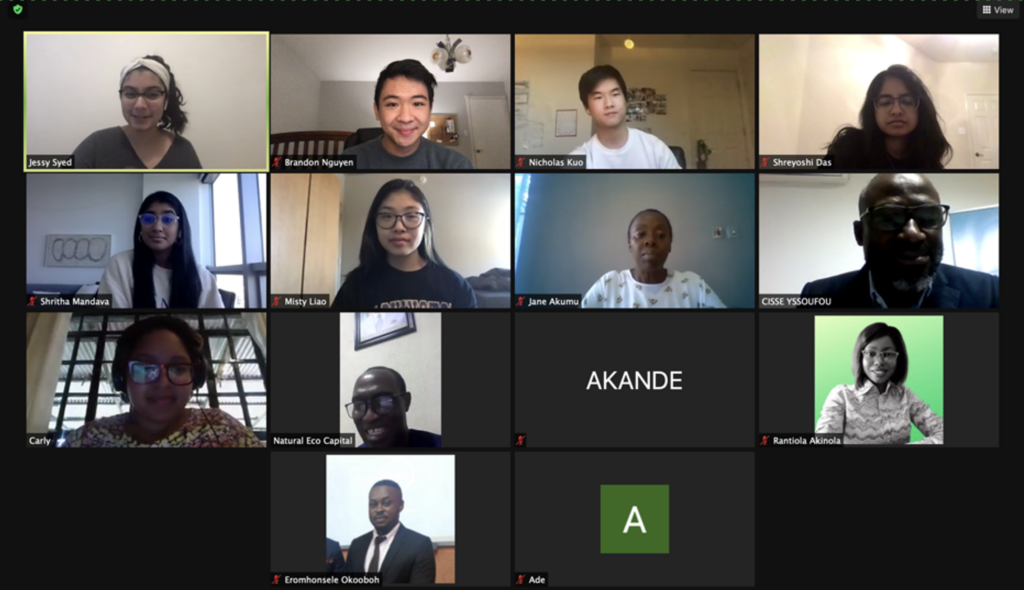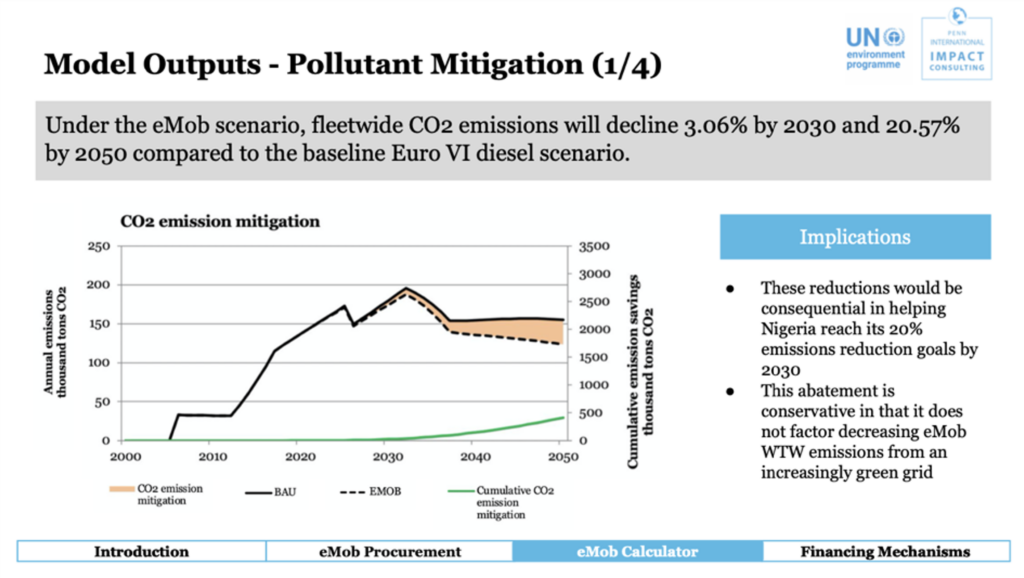
Penn Students Partner with United Nations to Scale Electric Mobility Across Sub-Saharan Africa
Penn International Impact Consulting partnered with the United Nations Environment Programme on two electric mobility solutions in Sub-Saharan Africa: deploying electric buses in Nigeria and scaling electric motorbikes across East Africa.
This past year, a team from Penn International Impact Consulting (PIIC) had the opportunity to partner with the United Nations Environment Programme (UNEP) on a project focused on scaling electric mobility solutions across Sub-Saharan Africa.
PIIC is a student-run consultancy at Penn that has partnered with over 70 NGOs and social enterprises across 40 countries since its founding in 2005. Providing pro-bono strategy consulting services, PIIC has worked on topics ranging from developing digital marketing strategies for low-income health clinics to financial models for environmental conservation non-profits.

The project with UNEP was focused on working with the Lagos Metropolitan Area Transport Authority (LAMATA) and technical consultants from Eco-Capital to develop a cost model and financing strategy for electric buses in Lagos, Nigeria. For example, LAMATA was interested in better understanding how electric buses benchmarked against diesel buses on outcomes such as total cost of ownership and various emissions abatement. Using an electric-mobility calculator template by the UNEP, Eco Capital was able to populate the model inputs with the help of LAMATA and PIIC.
In addition, LAMATA was also interested in learning about potential financing methods for electric buses. PIIC was able to consolidate key learnings from historical precedents to propose short- and long-term solutions to increasing the financial viability of electric buses, including attaining credit enhancements to bolster access to debt financing, implementing land-based value capture, and optimizing the farebox recovery ratio by adopting best practices from other transit systems.

Another aspect of the project focused on working with a Kenyan start-up, OpiBus, to understand gender dynamics and strategic considerations in scaling electric motorbikes across East Africa. With the support of the Kleinman Center for Energy Policy, PIIC was able to deploy a survey across Kenya as an input to our research.
To gather participants, PIIC worked with and compensated community partners to distribute the survey, including the Centre for Justice Governance and Environmental Action, the Flone Initiative, the International Support Network for African Development, and the African Center for Technology Studies. The survey sampled 68 individuals primarily based in Kenya, with participants hailing from urban hubs in Nairobi to pastoral and indigenous communities in more rural regions.
The survey mainly explored the relationship between demographic factors, current transportation behaviours, and purchasing attitudes towards electric motorbikes (ranking most important attributes, willingness-to-pay, etc.). Insights from the survey were then used, in conjunction with industry and academic desk research, to produce a report for Opibus on strategic considerations for an electric motorbike adoption strategy.

While our team had to adapt the project and pivot in response to the rapidly changing COVID-19 pandemic, the overall experience was incredibly enriching for the PIIC team, our clients, and our partners. We would also like to thank the Kleinman Center for Energy Policy for supporting our project, which would otherwise not have been possible.
Students interested in getting involved with PIIC can learn more at www.penniic.org
